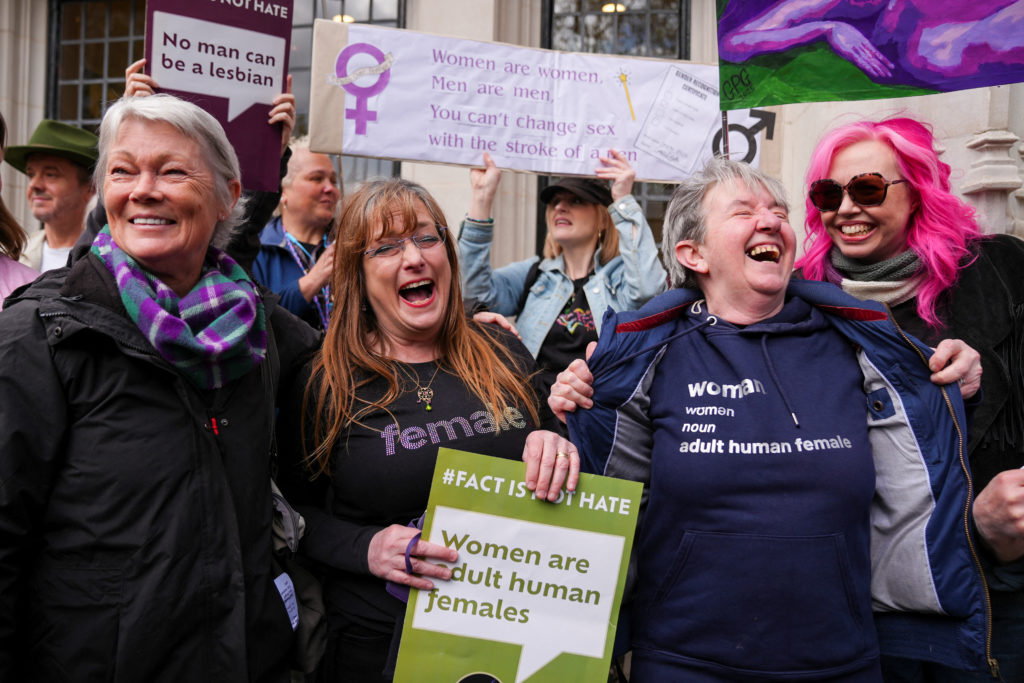
The UK Supreme Court has ruled that the Equality Act’s definition of “woman” only applies to biological women
Only biological women, not trans women, are recognized under the Equality Act, according to a historic UK verdict.
Only biological women are considered “women” under the Equality Act 2010, according to the Supreme Court of Britain. This important legal clarification has generated both support and anxiety throughout the nation.
The majority decision, which was delivered on Wednesday, found that even a trans woman with a Gender Recognition Certificate (GRC) is not legally entitled to the same rights under the Act as biological women enjoy with regard to single-sex services.
“This court has unanimously decided that the terms ‘women’ and’sex’ in the Equality Act 2010 refer to a biological woman and biological sex,” stated Lord Hodge, the Supreme Court’s deputy president.
The lawsuit, which was extensively followed by activists on both sides of the transgender rights controversy, focused on the extent of rights and safeguards for trans women, particularly in areas like hospitals, refuges, sports, and the workplace.
Transgender advocacy organizations have expressed concern over the decision, stating that it may lead to more exclusion and discrimination, especially in the workplace.
The government, however, applauded the ruling, saying it gave long-needed legal clarification to organizations that provide single-sex services, many of which had been unsure of their legal responsibilities.
“We advise against interpreting this ruling as a victory for one or more groups—it is not,” Lord Hodge continued.
With intense discussions about striking a balance between inclusiveness and the rights of biological women, trans rights have grown more and more contentious in British society.
While some contend that progressive rules on gender identity have weakened safeguards intended for women, critics have said that conservative right forces have weaponized the topic to harm minorities.
Legal conflicts that are also felt overseas are echoed by the verdict. In the United States, for instance, civil rights organizations have challenged President Donald Trump’s executive orders, which include the contentious decision to prohibit transgender people from serving in the military.
The top court in Britain has cautioned against viewing its decision as a political victory, but future policy, legal actions, and public debate are anticipated to be impacted by the consequences for women’s services and transgender rights.
All Categories
Recent Posts
Tags
+13162306000
zoneyetu@yahoo.com



